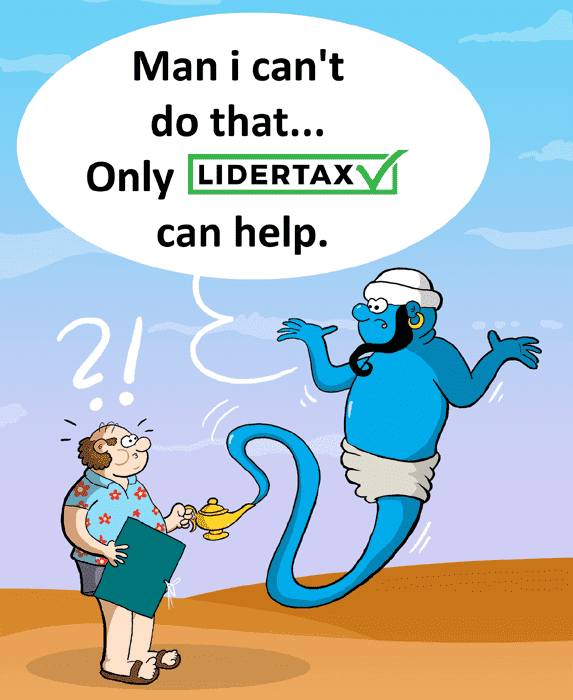
Have you ever wondered about how to avoid the child benefit tax charge? In many cases, child benefit can be incredibly helpful for families. However, receiving a child benefit tax charge can definitely sour the experience of receiving benefits. This is particularly notable if you’re in receipt of a high-income child benefit charge. Luckily, there are ways to avoid this, and understanding the child benefit tax threshold can help. In line with this thought, today, we’re looking at avoiding child benefit tax to help plan your own finances.
When Does the Child Benefit Tax Charge Apply?
Before we go any further, we first need to consider when the child benefit tax charge actually applies. Simply put, the child benefit tax charge does not actually apply to most families. In fact, for the majority of families, child benefits are completely tax-free. However, this is not the case in every scenario, meaning it’s important to understand the child benefit tax threshold.
Now, the child benefit tax threshold is different from the regular tax threshold. With the regular tax threshold on earnings, the tax man offers a personal allowance of just over £12,000. However, with the child benefit tax charge, this threshold is a lot higher. In fact, the tax threshold for child benefit tax charges is a whopping £60,000.
This £60,000 child benefit tax threshold applies to the highest earner within a family. As such, if one person makes over £60,000 per year, you’ll have to pay tax on your child benefits. However, if no one in the family earns £60,000 or more, you won’t pay the child benefit tax charge.
What if We Earn More Than £60,000 Combined?
The child benefit tax charge is based on the highest income earner in your household. Perhaps counterintuitively, it is not actually based on your household income. As such, if your household income exceeds £60,000 but neither individual earns this alone, you won’t be charged tax on child benefits.
Suppose that one family member earns £60,500 and another earns £12,000. In this case, you will have to pay child benefit. Similarly, if one family member earns £65,000 and another does not work, you will have to pay. If both family members earn £45,000 each (£90,000 in total), though, you’ll be avoiding child benefit tax. As such, it’s easy to see how the child benefit tax threshold can seem a little peculiar.
If you are a single parent, you’ll only exceed the child benefit tax threshold if you earn £60,000 plus. Given that many single parents also have a lot more childcare responsibilities, avoiding child benefit tax is often easier. Indeed, during the pandemic especially, single parent earnings feel significantly faster than two-parent households. Moreover, over half of single parents rely on Universal Credit, according to the King’s College London.[1] As such, the high-income child benefit charge is much more likely to apply to multi-parent households.
Why is the Tax System So Unfair on Child Benefits?
Many people consider the current child benefit tax threshold system to be unfair. However, the current government have said they aim to change this. However, whether a change will come in naturally will depend on which party wins the next general election. After all, each has very different pledges, so this isn’t certain yet.
At What Point Do I Pay the Full Child Benefit Tax Charge?
In the past, once one family member earned above the threshold, the full child benefit tax charge was required. However, changes for 2024/2025 mean that child benefit tax charges are now phased in. As such, above £60,000 for one earner, child benefits begin to phase out. However, you will not pay the full tax rate on child benefits until one earner reaches £80,000 in income.
How Much is the Child Benefit Tax Charge?
The child benefit tax charge is not a set rate. As such, unlike regular income tax, the child benefit tax charge is much more gradual than typical tax brackets. However, it can add up very quickly, which is worth keeping in mind.
When determining the child benefit tax charge you’ll pay, you first need to consider your income. Specifically, you’ll need to work out how much of the main earner’s income is above the £60,000 allowance. For example, someone earning £65,000 would be £5,000 above the child benefit tax threshold.
Once you know this, you can then work out how much tax you’ll pay. Tax on child benefits is charged at 1% for every £200 (or 5% for every £1000). As such, if you earn £65,000, you’ll pay tax on £5,000 – equivalent to 25% of your child benefit.
Avoiding Child Benefit Tax
Now that we know how high income child benefit tax charge is worked out, it’s worth asking: is avoiding child benefit tax possible? Well, you might be surprised at the number of options to avoid child benefit tax. This may vary depending on your specific position and employment status.
Avoiding Child Benefit Tax for Company Owners
Company owners have the easiest options to avoid child benefit tax. Indeed, since many company owners are paid based on dividends, adjusting these to fall below £60,000 can prevent tax. However, for many people, this could leave them missing out on substantial earnings. In this case, some people avoid child benefit tax by adjusting their dividends annually. For example, if you earned £80,000 on average, you could take out £59,999 one year and £100,001 the next. This would allow you to save a year’s worth of child benefit tax charges while paying the full tax the subsequent year.
Avoiding Child Benefit Tax for Self-Employed Workers
If you’re self-employed, you may have some freedom to postpone or bring forwards your tax deductible expenditure. This may allow you greater freedom to manage your child benefit tax charge accordingly. However, it’s advisable to discuss this carefully with your accountant.
Transferring Properties to a Spouse
If you are a property owner and earn more than £60,000 from your properties, you could consider transferring one (or more) to a spouse. This allows you to significantly reduce the amount you receive personally. In turn, depending on the number of properties you own, this may be enough to keep both earners below the £60,000 threshold.
Making Pension Contributions for Tax Relief from Child Benefits
One common way to reduce taxation – which also works to reduce your child benefit tax charge – is making pension contributions. Indeed, pension contributions directly contribute for tax relief. In turn, this can allow you to reduce your net income, thus keeping your child benefit tax charge lower.
It’s worth noting that your savings on child benefits taxes will often vary depending on your number of children. Generally, the potential tax saving (by percentage) will be greater for those with multiple child benefit claims. This is since the level of child benefit provided is not directly proportional to the number of children. Accordingly, the second, third, and fourth child getting child benefit receive this at a lower rate.
Always Partner with a Professional Accountant for More Support
Overall, avoiding child benefit tax can be somewhat tricky. As a result, partnering with a professional accountant near you can be incredibly helpful. They can help find the most cost-effective solutions to help keep you below the child benefit tax threshold.
But remember: in some cases, avoiding the high-income child benefit tax charge may not be possible. This will depend on your unique circumstances, which is why getting professional help can often prove important. Fortunately, our own teams are experts when it comes to child benefit tax charges. So, why look anywhere else for professional support – Get a FREE consultation – CLICK.



